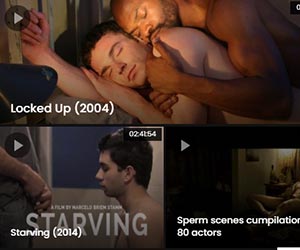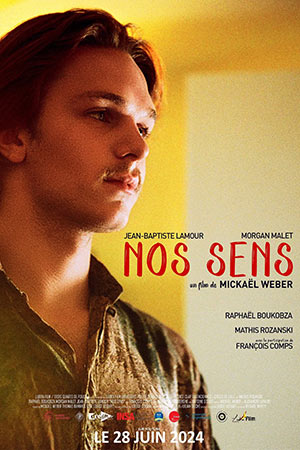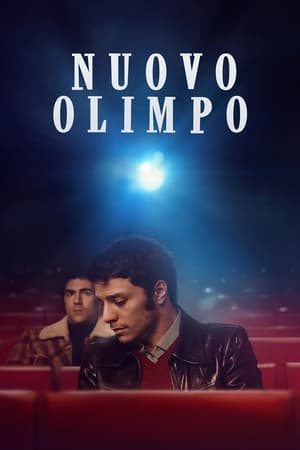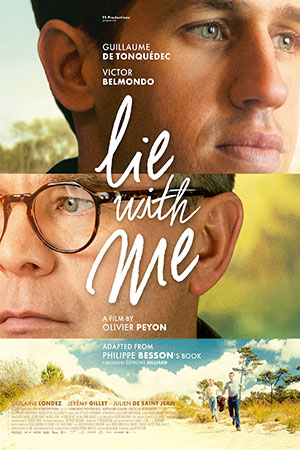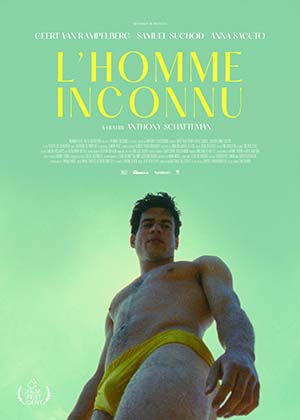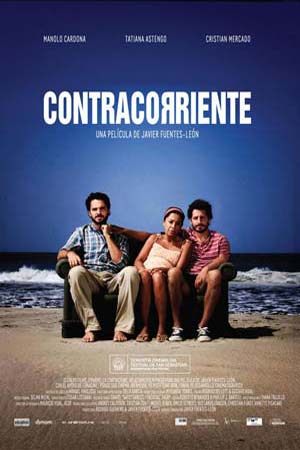Home » Drama » Our Senses (Nos Sens) 2024: a short film by Mickaël Weber
Our Senses (“Nos Sens”), directed by Mickaël Weber, is an intimate and emotionally charged short film about self-acceptance, love, and the complexities of sexuality. At its heart, the film explores the story of Arthur, a 20-year-old student who, just as summer approaches, faces the realization of his deep attachment to his best friend Tony, who is preparing to leave for Canada. What begins as a close friendship soon transforms into a painful journey of self-discovery, as Arthur must confront his own feelings and the expectations and judgments of others.
The film begins with Arthur’s growing sense of disorientation. His best friend Tony, a constant figure in his life, is about to leave for a year abroad. The prospect of this separation forces Arthur to confront feelings he has long kept buried—his love for Tony. The film delicately captures the fear, hesitation, and vulnerability of someone realizing they have fallen for their best friend.
What sets Our Senses apart is its raw depiction of the emotional turmoil Arthur endures. The scene where Arthur leaves his father a voicemail confessing his homosexuality sets the tone for the film’s core theme—self-acceptance. Arthur is not only grappling with how to express his feelings for Tony but is also seeking approval from his father, whom he feels distant from. The conversation (or lack thereof) with his father mirrors the larger societal expectations and pressures that Arthur feels.
The dialogue throughout the film is natural and heartfelt. Arthur’s confession to Tony feels both inevitable and agonizing. The way Arthur questions his own emotions, struggles with his identity, and deals with societal expectations is handled with nuance and sensitivity. The film also touches on the fear of rejection and the fear of being judged for loving someone of the same sex. Tony’s conflicted response to Arthur’s confession adds layers to the film. His initial resistance is framed by a mix of confusion, societal conditioning, and, perhaps, a similar fear of judgment.
The moments of tenderness, hesitation, and vulnerability between Arthur and Tony make the film deeply relatable, especially for anyone who has ever struggled with unrequited love or feared judgment for their true self.
Mickaël Weber’s direction is subtle yet powerful. The film’s visuals capture both the beauty and isolation of Arthur’s inner world. The cinematography by Marine Vanlherberghe complements the intimate and often claustrophobic nature of Arthur’s emotional state. The camera lingers on expressions, long pauses, and silent moments that speak louder than words, allowing the viewer to fully feel the weight of Arthur’s dilemma.
The setting of the film, particularly the use of small alleys and open spaces, reinforces Arthur’s feeling of being lost and his struggle to find clarity amidst emotional chaos. The locations chosen, like the Place d’Armes, serve as symbolic spaces where the characters are both physically and emotionally vulnerable.
The editing, handled by Mickaël Weber and Alexandre Lavaud, keeps the narrative tight and focused, never allowing the emotional tension to dissipate. Each scene builds on the next, moving toward the film’s inevitable emotional climax.
The film’s performances are its strongest asset. Jean-Baptiste Lamour delivers a standout performance as Arthur. His portrayal of a young man battling both his love for his best friend and his fear of societal rejection is heartfelt and authentic. His vulnerability, particularly in his conversations with Tony, feels real and relatable. Lamour’s nuanced expressions and subtle body language convey more than words ever could, making Arthur a deeply sympathetic character.
Morgan Malet as Tony is equally compelling. His performance captures the confusion and conflict that Tony experiences when confronted with Arthur’s feelings. The dynamic between the two characters is palpable, and their chemistry brings depth to the story. Malet expertly portrays Tony’s struggle with his own emotions, especially in the climactic confrontation where Tony’s resistance crumbles, revealing the deep connection he shares with Arthur.
The supporting cast, particularly Raphaël Boukobza and Mathis Rozanski, add richness to the story, creating a believable world around the two leads. Their characters serve as foils and sounding boards for Arthur’s internal conflict, providing both light-hearted moments and deeper reflections on love and friendship.
The film’s original score by Jean-François Leroux perfectly captures the emotional tone of the story. The music enhances the film’s mood, guiding the audience through moments of tension, tenderness, and reflection without overwhelming the scenes. The sound design, handled by Antoine Goliot, Cédric Derieux, Vincent Harendarczik, and Félicien Goasdoué, is subtle yet effective, allowing the film’s emotional beats to land with precision.
At its core, Our Senses is a story about identity and the struggle for acceptance—not just from society, but from oneself. Arthur’s journey reflects the universal experience of coming to terms with who you are, and the bravery required to love openly, despite the fear of rejection or judgment. The film’s exploration of homosexuality is handled with care, focusing not on the sensational aspects of coming out, but on the quiet, personal moments of realization and courage.
The film also addresses the importance of friendship, and how love can blur the lines between platonic and romantic. Arthur and Tony’s friendship is deep, and it is this very depth that makes their love story both beautiful and heartbreaking. The film suggests that love, in any form, should be expressed openly, and that hiding one’s true feelings only leads to pain and regret.
Our Senses is a beautifully crafted short film that dives deep into the emotional complexities of love, friendship, and self-acceptance. Mickaël Weber’s direction, coupled with powerful performances from Jean-Baptiste Lamour and Morgan Malet, makes this a poignant and moving story. The film’s subtle exploration of sexuality and identity, paired with its natural dialogue and emotional depth, will resonate with anyone who has ever faced the fear of loving someone they shouldn’t.
Though short in runtime, Our Senses delivers a profound message about the importance of being true to oneself and the courage it takes to love openly in a world that may not always be accepting. It’s a story that stays with you, urging you to embrace who you are and fight for the love you deserve.









